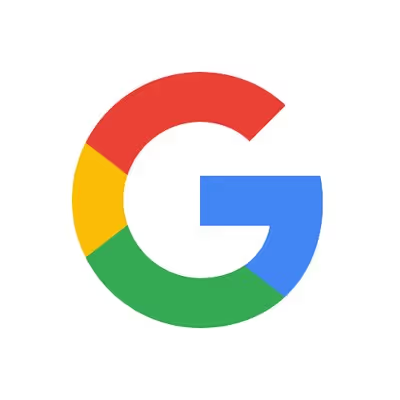
Google exists to make the vast trove of global information universally accessible and useful, envisioning a future where knowledge empowers everyone, everywhere. The company builds intelligent tools that help individuals and businesses efficiently find, understand, and use information to improve lives and drive innovation.
At the forefront of integrating advanced technologies such as AI, machine learning, and cloud computing, Google continually evolves its powerful ecosystem — spanning search, advertising, communication, and operating systems — to unlock new possibilities and streamline how people interact with digital content.
Driven by a deep commitment to open access and user-centric design, Google shapes a future where technology connects communities, fuels creativity, and solves some of humanity’s most complex challenges.
Our Review
After more than two decades of reshaping how we access information, Google remains the undisputed king of search — and honestly, it's hard to imagine the internet without it. We've watched this Stanford dorm project evolve from a simple search engine into a tech empire that touches nearly every aspect of our digital lives.
What Still Impresses Us
Google's core search algorithm continues to blow us away with its accuracy and speed. Sure, we take it for granted now, but the fact that we can type virtually anything and get relevant results in milliseconds is still pretty remarkable. The company's ability to anticipate what we're looking for — often before we finish typing — shows just how sophisticated their understanding of user behavior has become.
What's equally impressive is how they've built an ecosystem that just works together. Gmail integrates seamlessly with Google Drive, which connects to Google Docs, which syncs with your Android phone. It's the kind of smooth experience that makes you forget you're using multiple products from the same company.
The Expansion That Actually Made Sense
Unlike many tech giants that seem to acquire companies just for the sake of it, Google's major moves have been surprisingly strategic. The YouTube acquisition in 2006 now looks like pure genius — they essentially bought the future of video content. Android's development gave them a mobile operating system that could compete with Apple, and Chrome became the world's most popular browser.
We're particularly fond of how they've handled Gmail. Launching with 1GB of storage when competitors offered 15MB was a bold move that immediately changed user expectations. Twenty years later, it's still our go-to recommendation for email.
Where We See the Real Value
For everyday users, Google's strength lies in its reliability and ubiquity. Whether you're a student researching a paper, a traveler navigating a new city with Google Maps, or a business owner trying to reach customers through Google Ads, the platform just works. The learning curve is minimal, and the results are consistently good.
Small businesses especially benefit from Google's advertising ecosystem. We've seen countless companies grow their customer base significantly through well-targeted Google Ads campaigns, and the analytics provide insights that were previously available only to large corporations with big marketing budgets.
The Bottom Line
Google isn't perfect — privacy concerns and market dominance are legitimate issues worth discussing. But from a pure functionality standpoint, they've created tools that have genuinely improved how we work, learn, and connect. The company's mission to "organize the world's information and make it universally accessible" might sound grandiose, but they've come remarkably close to achieving it.
Whether you're a tech enthusiast or someone who just wants things to work without fuss, Google's suite of products delivers consistent value. It's rare to find a company that's maintained this level of innovation and reliability for over 25 years.
Feature
Web search engine
Email service (Gmail)
Maps and navigation
Web browser (Chrome)
Video platform (YouTube)
Mobile OS (Android)
Advertising platform (Google Ads)








